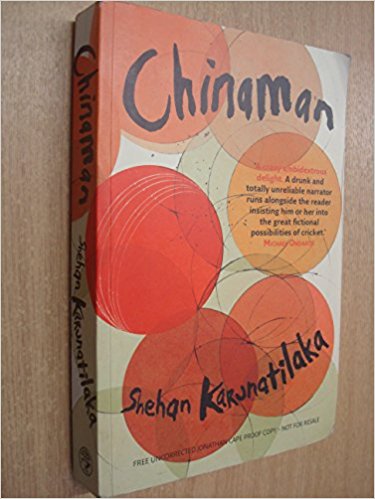Cricket and Sri Lanka share a rather formidable history. Tracing this, the cricket enthusiast-turned-anthropo-logist Michael Roberts (University of Adelaide), draws on the diversity in team composition as testimony to the inherent cosmopolitanism of the island—as native to it as the strains of the raucous but vibrant (Tamil) Baila, i.e., before democratic governance determined by majoritarianism set in. Roberts recollects and records a time when the cricket stadium, the Colombo Lords, resounded with thunderous cheer as the Ceylonese beat the expats at their own game. Cricket, needless to say, has been an integral part of life on the island-nation, and authors writing Ceylon, Sri Lanka cannot help but acknowledge this—be it Michael Ondaatje penning a family history in Running in the Family or Romesh Gunasekera writing about alternative sexualities in The Match. Cricket in Sri Lanka has certainly survived the war.
Winner of the Gratiaen award (2008), and more recently of the Jaipur Lit-Fest prize for fiction, this imaginative piece of writing, liberally peppered with invective and irony could well have been a treatise on the state of cricketing in the post colony or even a well-documented catalogue of postcolonial malaises ranging from the rabid nationalism of ethnic separatism (as spawned by the obsessive Sinahala purist Anagrika Dharampala) to nonexistent Third World coaching, machinations of the cricket board with the match-fixing and betting thrown in for good measure; but in the hands of ad-man Shehan Karunatilaka and his knee-jerker one-liners, the book morphs into a litterateur’s delight! For reasons more than one. Informed by the perspective of an arrack swigging, passionate about cricket journo— Gamini, disgruntled with having to report from parliament about grown men ‘braying like donkeys or squabbling like infants’, he insists, with the sagacity that only the drunk may possess, that what the world really needs, more than the tribes of peaceniks and environmentalists, is a ‘half-decent’ documentary on Sri Lankan cricket. Gamini has a deadline to meet—another year at the most before his kidneys collapse and what we get is a narrative densely packed with Chaucerian panache.
May 2012, volume 36, No 5

